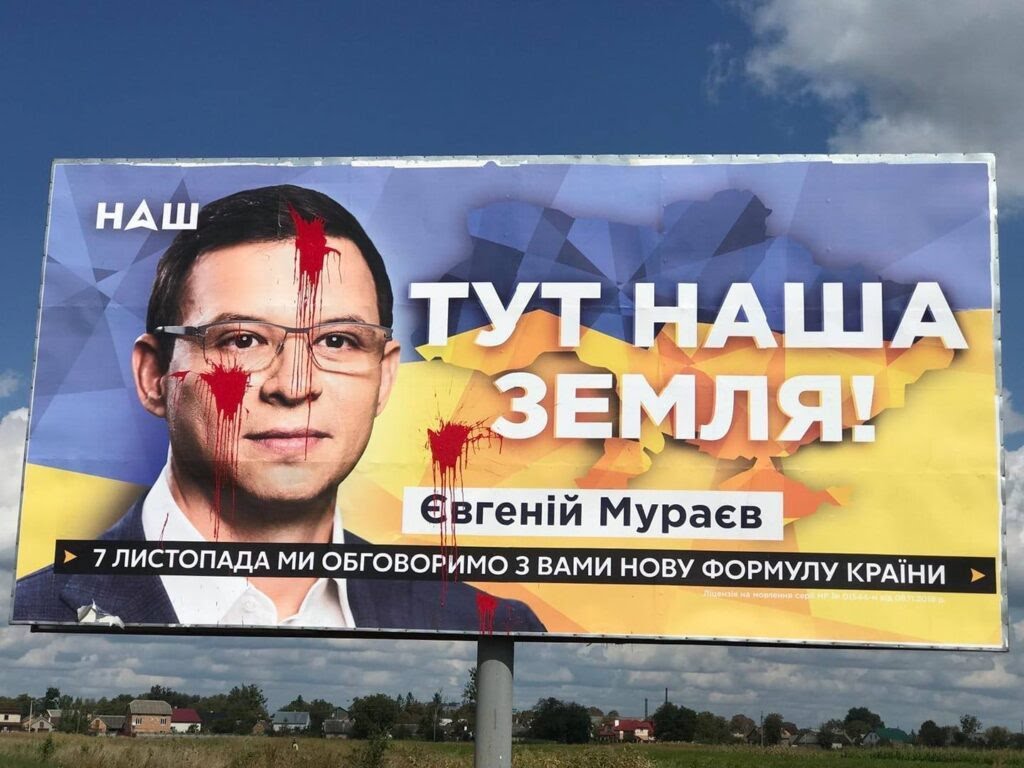
In recent days, I talked to Ukrainians, both in Kyiv and Kharkiv, about how they feel in connection to a threat of a new Russian attack on Ukraine. A thread:
Many people said they were packing go-bags with essential items, such as documents, medicines, cash, to grab if they need to leave their houses urgently, for example, in case of an airstrike alert. Iryna, manager at the construction company, said she had one ready since 2014
‘I have it ready since the war started. Now I just need to buy some dry food to take with me’.
Iryna, like many Ukrainians, has been following with increasing anxiety the news of Russian military buildup at Ukraine’s borders. She is pondering whether she should leave her home
Iryna, like many Ukrainians, has been following with increasing anxiety the news of Russian military buildup at Ukraine’s borders. She is pondering whether she should leave her home
Yuliya Smirnova, who has two children aged 4 and 5, says she is undecided whether she should flee Kyiv, and if yes, in which direction. Her elderly mother and grandmother live in Kalanchak, in the southern Kherson region of Ukraine, just 20 km from the Russian-occupied Crimea.
‘I don’t know what to do first: evacuate my children from Kyiv or help my mom and grandma flee? If they [Russians] attack from the north towards Kyiv,then I should first bring my kids to my husband’s family in the Western Ukraine. And later go south to pick up my relatives there’
While some prepare to flee, others are determined to stay.
‘I am not planning to leave Kharkiv’, says Tetyana Tanchuk, a content manager from this Eastern Ukrainian city, situated just 40 km from the Russian border.
‘I am not planning to leave Kharkiv’, says Tetyana Tanchuk, a content manager from this Eastern Ukrainian city, situated just 40 km from the Russian border.
‘There's no panic. In fact, it was much more scary in 2014 than now, because Kharkiv population has shown that we don’t want Russians here. Besides, the Ukrainian armed forces are much stronger now than at the start of war, when they fought literally in slippers’, Tanchuk said
Yevhen Spirin, a journalist, had to flee his native city of Luhansk in spring 2014, after Russian special forces violently seized control of it. ‘They knew I supported Maidan. Some people approached me, put me into a car, took me to the river and said I had 24 hours to leave’.
Spirin is one of 1.5 million of internally displaced Ukrainians, who left the occupied Crimea and Donbas since 2014. He left Luhansk and has never been back since. Now, he dreads the prospect of having to abandon his new home in Kyiv.
‘I’m trying to stay calm because I think it’s a part of Putin’s plan: to make Ukrainians nervous’, Spirin said. ‘I will not leave Kyiv and my home again. If the new invasion starts, I hope I can work as a journalist - or as a nurse, as I did years ago’.
Medical workers will indeed be needed in case of a new Russian invasion of Ukraine, says Iryna Yosypenko, 53, a surgeon with more than 20 years of experience at the Kyiv emergency hospital polytrauma department.
In 2014, Yosypenko volunteered as a doctor during the Maidan protests, helping to cure wounded protesters. Then, when the war in Donbas began, Iryna joined the Ukrainian National Guard as a frontline doctor. In 2018, she left the army due to deteriorating health.
But as Russia started to amass troops at the Ukrainian border in late 2021, she decided to join territorial defence units to support resistance.
‘I realized that I can still do many things. For example, to organize training on first medical aid’, Iryna said.
‘I realized that I can still do many things. For example, to organize training on first medical aid’, Iryna said.
‘Now I am in reserve. But if Russia attacks Kyiv, I will return to be a frontline doctor, providing first aid and organizing medical personnel and the whole process’.
This thread is based on my article for @EFEnoticias. Text in Spanish: swissinfo.ch/spa/ucrania-ru…
• • •
Missing some Tweet in this thread? You can try to
force a refresh







